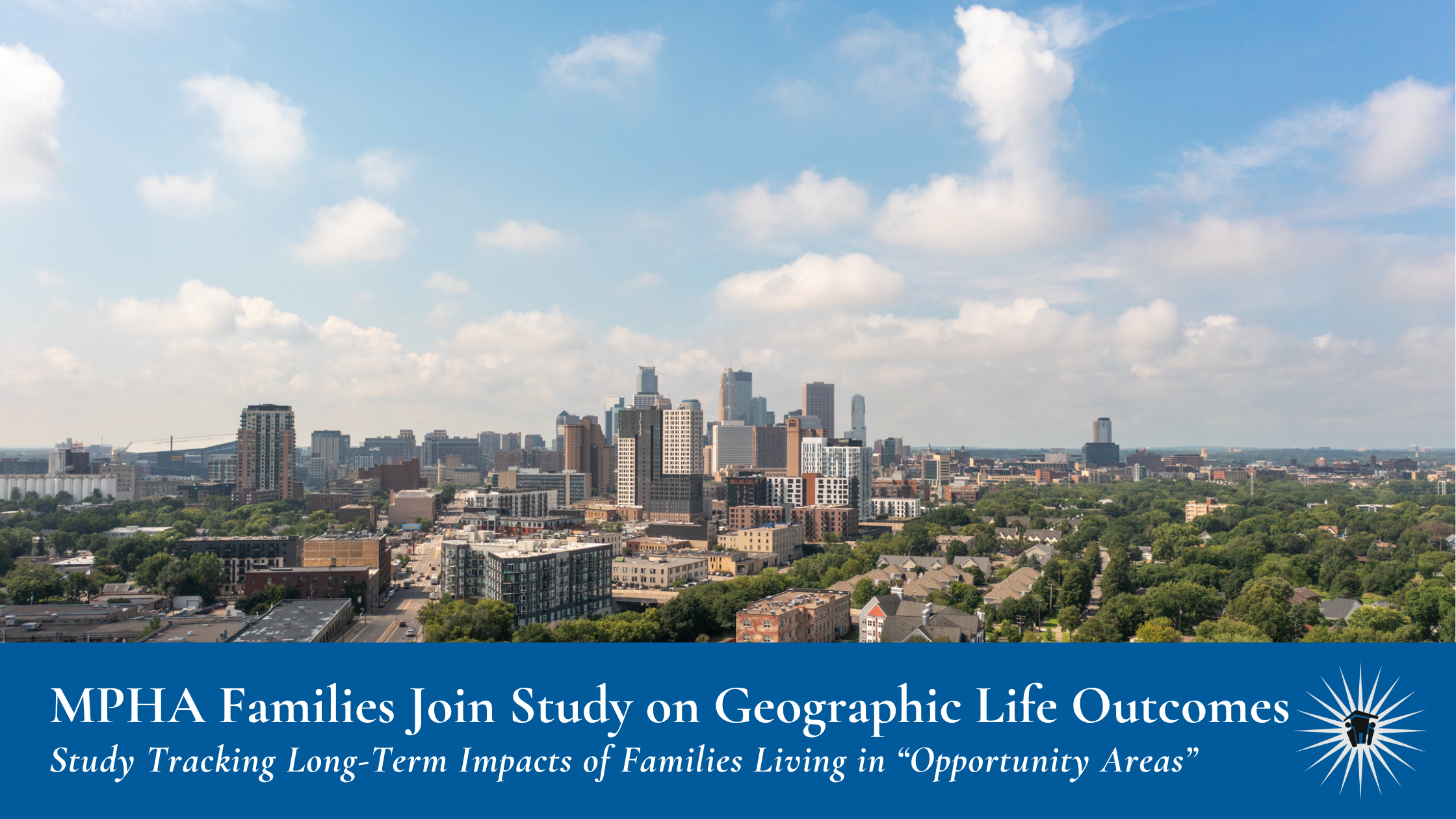An ongoing study by the U.S. Department of Housing and Urban Development (HUD) measuring the long-term impacts of low-income families living in “opportunity areas” has reached a new milestone in the Twin Cities of 100 participating families. Of those families, 61 are families in MPHA’s Housing Choice Voucher (HCV) program.
The Community Choice Demonstration (CCD) is multi-year study tracking the long-term impacts of families moving to and living in “opportunity areas” with varying levels of housing mobility-related services. The CCD is a joint effort between MPHA, the Metropolitan Council’s Housing and Redevelopment Authority (Metro HRA), and HUD.
Opportunity areas are neighborhoods, defined by HUD and determined by census data, where children are most likely to thrive because of better schools and lower poverty rates. Previous studies have shown that when HCV families move to these opportunity areas, children are more likely to achieve upward economic mobility later in life. In fact, studies show that every year a child lives in an opportunity area, their earned income as working adults increases.
Historically, HCV families have found it difficult to access opportunity areas. Lack of affordable housing options and few property owners willing to accept vouchers make moving challenging for voucher-holders. The CCD program is working to study how voucher-holders might be able to better overcome these barriers. The CCD program provides selected families additional assistance in the rental process to understand what solutions are most effective to overcoming the barriers to living in opportunity areas.
Half of the families in CCD receive comprehensive support services, including pre- and post-move coaching, housing search assistance, and financial assistance to help cover moving-related expenses like security deposits and application fees. To determine the impact of these services, outcomes for these families are compared to those of families who receive only baseline services that are part of the usual housing choice voucher process. An initial evaluation of the study showed those wraparound services as impactful, with 24 percent of families receiving the additional services moving to opportunity areas versus only four percent of families that did not receive services.
The MPHA and Metro HRA Twin Cities regional partnership is one of eight sites nationwide participating in the study. The program is scheduled to run through 2028, with the hopes of gaining an understanding of the most effective tools to help voucher-holders access opportunity areas in their community. With enrollment ending in June 2026, MPHA and Metro HRA intend to enroll another 120 families, with 22 of these being MPHA waitlist families.



